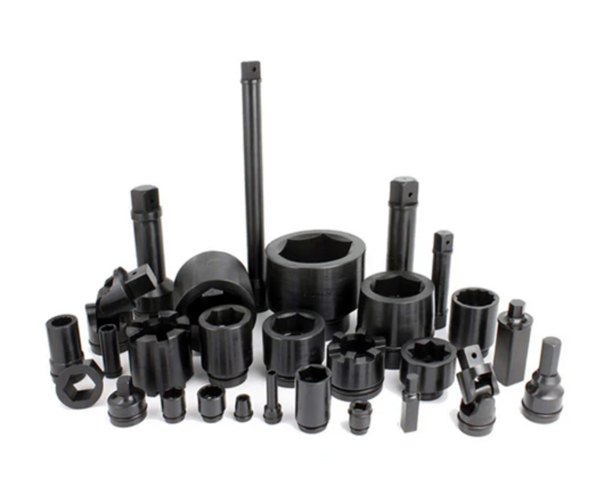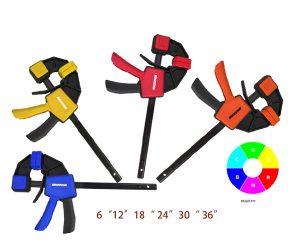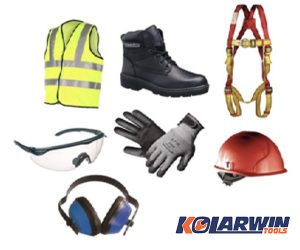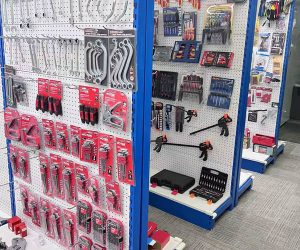When it comes to choosing the best impact sockets for your workshop, it’s crucial to make informed decisions. Selecting the wrong socket can lead to inefficiency, safety risks, and wasted time. In this article, we’ll walk you through the essential factors to consider when choosing impact sockets, ensuring you pick the right tools for your needs. Whether you’re in automotive repair, DIY projects, or woodworking, these tips will help you make the best investment for your workshop.
1. What are Impact Sockets?
Impact sockets are specialized tools designed to withstand high torque forces applied by impact wrenches. Unlike standard sockets, these are built to endure the intense, rapid force that impact tools generate, making them crucial for heavy-duty work. But here’s the kicker—while they may look similar to regular sockets, they are constructed from different materials and have specific design features that help them withstand much more stress.
Impact sockets come in various types, including deep, shallow, and universal styles, each serving a distinct purpose. Their key difference lies in the material composition. They are usually made from either Chromium Molybdenum (CR-MO) or Chromium Vanadium (CR-V) steel. These materials are known for their strength and durability, which is necessary for absorbing the shock of the repeated impacts without cracking or breaking.
Ready for the good part? Impact sockets are vital for preventing damage to fasteners, avoiding tool breakage, and keeping your projects on track. Whether you’re working with a torque wrench or an impact driver, choosing the right socket ensures maximum efficiency and safety.
2. Why Quality Matters in Impact Sockets
Have you ever experienced a socket snapping under pressure? It’s not only frustrating but also dangerous. The reality is that low-quality sockets can cause you to lose valuable time and can even lead to injuries. Substandard materials or poor craftsmanship result in sockets that wear out quickly, break under heavy torque, and fail to meet safety standards. But here’s the kicker—by investing in quality, you not only save time but also reduce the risk of tool-related accidents.
The consequences of using cheap impact sockets are real: you might face downtime, rework, and safety risks that could have been avoided. High-quality impact sockets are engineered to last longer and perform better, even in extreme conditions. For example, CR-MO steel, known for its durability, is often used in the best impact sockets, as it is tough enough to withstand heavy-duty applications without cracking under stress. Moreover, certified impact sockets come with warranties, ensuring that you are covered if they fail prematurely.
By choosing high-quality impact sockets, you’re making a smart investment that helps you maintain productivity and reduces the chances of safety incidents in your workshop.
3. How Impact Sockets Are Made
What’s the real story behind how impact sockets are made? While it may seem like a simple tool, a lot of science and engineering go into creating the perfect impact socket. These tools are manufactured with precision and care, using materials designed for strength and resilience. Most impact sockets are crafted from high-strength alloy steel, like CR-MO and CR-V, which are heat-treated to enhance their toughness and resistance to wear.
The manufacturing process of these sockets often involves forging and heat treatment. In forging, raw steel is heated and shaped under extreme pressure to form a strong, solid piece. Then, during heat treatment, the metal is cooled at precise temperatures to increase hardness and strength. This process ensures that impact sockets can handle the shock and torque from an impact wrench without cracking.
This is where it gets interesting—the design of the socket, including its thickness and shape, also plays a key role in its strength. Some impact sockets feature thicker walls for added durability, while others are designed with shallow depths or deep designs depending on the task. The combination of material and design ensures that the socket can endure repeated impacts and keep performing at its best under tough conditions.
4. Types of Impact Sockets: Which One is Right for You?
So, which impact socket is right for your job? There are several types of impact sockets, each tailored for specific uses. For example, standard impact sockets are the most common and are perfect for general applications like automotive repair or heavy-duty equipment maintenance. They are typically shallow, designed to work with bolts and fasteners that are within easy reach.
On the other hand, deep impact sockets are built for deeper fasteners or when you need to reach into tight spaces. These sockets are ideal for tasks like working with long bolts or nuts in machinery. Universal impact sockets, as the name suggests, are versatile and can handle both standard and metric fasteners, making them great for those who need a multi-functional tool.
But here’s the catch—when you choose an impact socket, you’ll also need to match it with the size of the bolt or fastener you’re working with. Impact socket sets typically come with a variety of sizes to ensure you can tackle different jobs without any hassle. Socket size is another essential factor to consider, as it affects how well the socket fits and performs under pressure.
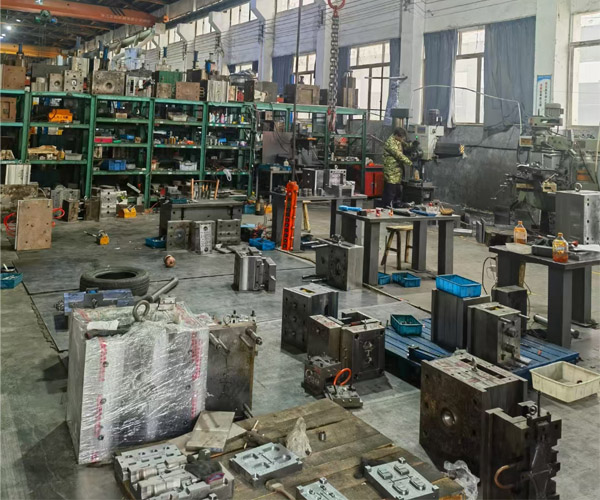
5. Key Features to Look for in the Best Impact Sockets
When searching for the best impact sockets, certain features should be at the top of your checklist. Material quality, design, torque capacity, and compatibility are all crucial factors that can make or break the performance of your tool.
What’s the real story behind material choices? As mentioned, CR-MO and CR-V steel are considered the best for impact sockets. These materials provide the strength and resilience needed to handle the repetitive forces exerted by an impact tool. Additionally, look for sockets with a black oxide finish or chrome plating, which offer corrosion resistance and protect the socket from rust or wear over time.
Next, consider the socket design. High-quality impact sockets are often made with six-point or twelve-point configurations. Six-point sockets provide a stronger grip on fasteners and are generally better for high-torque applications. Twelve-point sockets, while slightly less durable, are useful for working with fasteners in confined spaces because they can grip in more positions.
Ready for the good part? When purchasing impact sockets, make sure they are compatible with your existing tools. Some sockets are designed specifically for use with impact wrenches, so it’s essential to match the right socket with the correct tool for optimal performance.
6. How to Properly Use Impact Sockets
Here’s the kicker—using an impact socket the right way is just as important as choosing the right one. To ensure safety and maximize efficiency, follow proper usage techniques. First, never use an impact socket for anything other than its intended purpose. These sockets are made specifically to handle high torque, so using them for light-duty tasks can result in unnecessary wear and even breakage.
Make sure you’re always using the correct size socket for the job. A socket that’s too small can cause damage to both the socket and the fastener, while one that’s too large can result in a poor fit and ineffective torque transfer. If your impact socket feels loose, it’s time to replace it.
What’s the real story? Impact sockets should always be used with an impact wrench or impact driver that is designed to handle the increased torque. Pairing the wrong tool with your socket can lead to poor performance and safety hazards.
7. Impact Socket Size Chart: Finding the Perfect Fit
When it comes to choosing the right impact socket size, knowing your fasteners is essential. Using a socket that fits correctly can prevent damage to your tools and fasteners and ensure optimal torque delivery. But here’s the kicker—impact sockets are available in a wide range of sizes, so it’s crucial to understand the size chart to pick the right one.
Ready for the good part? Here’s a handy size chart to guide you in choosing the right socket for various fasteners.
| Socket Size | Bolt Size Range (Inches) | Typical Use |
|---|---|---|
| 1/4″ | 3/16″ – 3/8″ | Small precision tasks |
| 3/8″ | 3/8″ – 5/8″ | General automotive work |
| 1/2″ | 1/2″ – 3/4″ | Heavy-duty tasks |
| 3/4″ | 3/4″ – 1″ | Large machinery |
| 1″ | 1″ – 1 1/4″ | Industrial applications |
Choosing the right size socket ensures that you can work efficiently without risking damage or poor performance.
8. How to Maintain Your Impact Sockets for Longevity
Impact sockets are built to withstand a lot of wear and tear. But here’s the kicker—if you don’t maintain them properly, they’ll wear out faster than expected. Here’s how you can keep your sockets in top condition for longer. Start by cleaning your sockets after every use to remove dirt, grime, and oil. Using a wire brush or rags works well, and for heavier buildup, soak the sockets in a cleaning solution.
Store your sockets in a dry, cool place to prevent rust. Using a tool organizer or case can help keep your sockets in good condition by preventing them from getting scratched or damaged when not in use.
Ready for the good part? Impact sockets have a lifespan that can be extended significantly if you inspect them regularly. Look for signs of cracking, chipping, or wear on the inside of the socket. If you notice any of these, it’s time to replace the socket to maintain safety and performance.
9. Common Mistakes to Avoid When Using Impact Sockets
Impact sockets are tough, but they still require proper handling to avoid damage. One common mistake is using the wrong size socket, which can cause tool failure or damage to fasteners. Another common error is using impact sockets on non-impact tools. Regular wrenches or hand tools are not designed to handle the torque produced by impact wrenches, which can result in broken sockets.
Also, never use an impact socket that is cracked or worn. Doing so will not only reduce performance but also increase the risk of accidents. Make sure to store your sockets properly to avoid unnecessary damage, and always inspect them before each use to ensure they’re in good condition.
10. Benefits of Buying Impact Socket Sets vs. Individual Sockets
What’s the real story? When it comes to stocking your workshop, buying a complete impact socket set can be a wise decision. Sets typically offer a range of sizes and socket types in one package, giving you flexibility for different tasks. Plus, sets often come with a storage case, which helps keep everything organized and in good condition.
Buying individual sockets might seem cheaper, but it’s often less cost-effective in the long run. You might find that you need a wider variety of sizes than you initially thought. With a set, you’re already prepared for any job that comes your way.
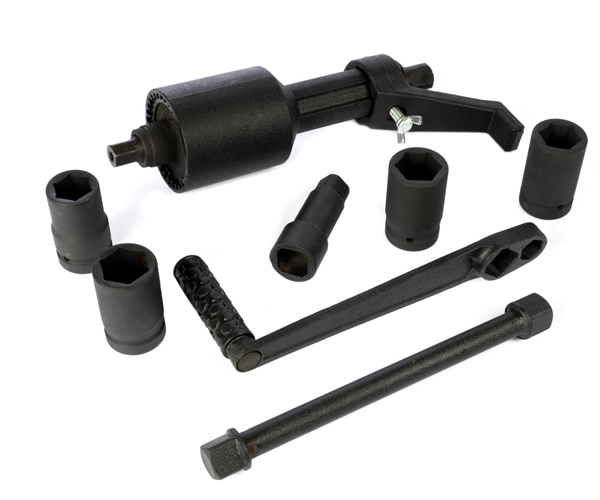
11. Best Brands for Impact Sockets in 2025
With so many brands on the market, choosing the best one for your needs can be tricky. Here’s the kicker—not all brands are created equal. Some offer high-quality, durable impact sockets, while others may cut corners on materials. Top brands like Snap-On, Matco Tools, and Craftsman are known for their premium-quality sockets that perform well in tough conditions. These brands offer comprehensive warranties and are widely trusted by professionals.
Ready for the good part? While premium brands are often pricier, they can save you money in the long run due to their durability and long lifespan. Plus, you’ll avoid the risk of faulty tools that can lead to costly rework and downtime.
12. Where to Buy the Best Impact Sockets
When it comes to purchasing impact sockets, where you buy matters. You can find them in local hardware stores, but online marketplaces often offer better selection and competitive prices. Websites like Amazon, eBay, and tool-specific retailers often have reviews from previous buyers, helping you make an informed decision.
Here’s the kicker—always look for authorized distributors when buying online. Unauthorized sellers may offer lower prices, but they could also sell counterfeit products that don’t meet safety standards.
13. Impact Sockets vs. Regular Sockets: A Cost Comparison
What’s the real story behind the price difference between impact sockets and regular sockets? Impact sockets generally cost more due to their superior materials and durability. But here’s the kicker—although they’re pricier upfront, impact sockets often last longer and perform better, making them a smarter investment over time. Regular sockets, while cheaper, don’t withstand high torque as well, and can crack or wear out faster under pressure.
In the long run, buying impact sockets is more cost-effective for professional work environments where durability is a must.
14. Conclusion
To sum up, choosing the best impact socket for your workshop involves considering material quality, design, size, and maintenance requirements. High-quality impact sockets are essential for safe, efficient work, especially when working with impact tools. Whether you’re buying a single socket or a full set, understanding the features and benefits will help you make the best choice.
FAQ S
Q1: What is an impact socket?
An impact socket is a tool designed to withstand high torque forces applied by impact wrenches. These sockets are made from stronger materials to prevent damage under heavy stress.
Q2: How do impact sockets work?
Impact sockets are made to absorb the high force generated by impact tools. Their construction allows them to withstand shock without breaking or warping, making them ideal for heavy-duty applications.
Q3: What materials are impact sockets made from?
Impact sockets are generally made from CR-MO or CR-V steel, both of which are heat-treated for strength and durability. These materials are resistant to wear and cracking under impact.
Q4: Can I use an impact socket with a regular wrench?
While impact sockets can technically be used with regular wrenches, they are specifically designed for use with impact tools. They perform best when paired with an impact driver or wrench.
Q5: How do I maintain my impact sockets?
To maintain your impact sockets, regularly clean them after use, inspect for cracks or damage, and store them in a dry place to avoid rust. Proper maintenance can extend their lifespan and ensure optimal performance.

